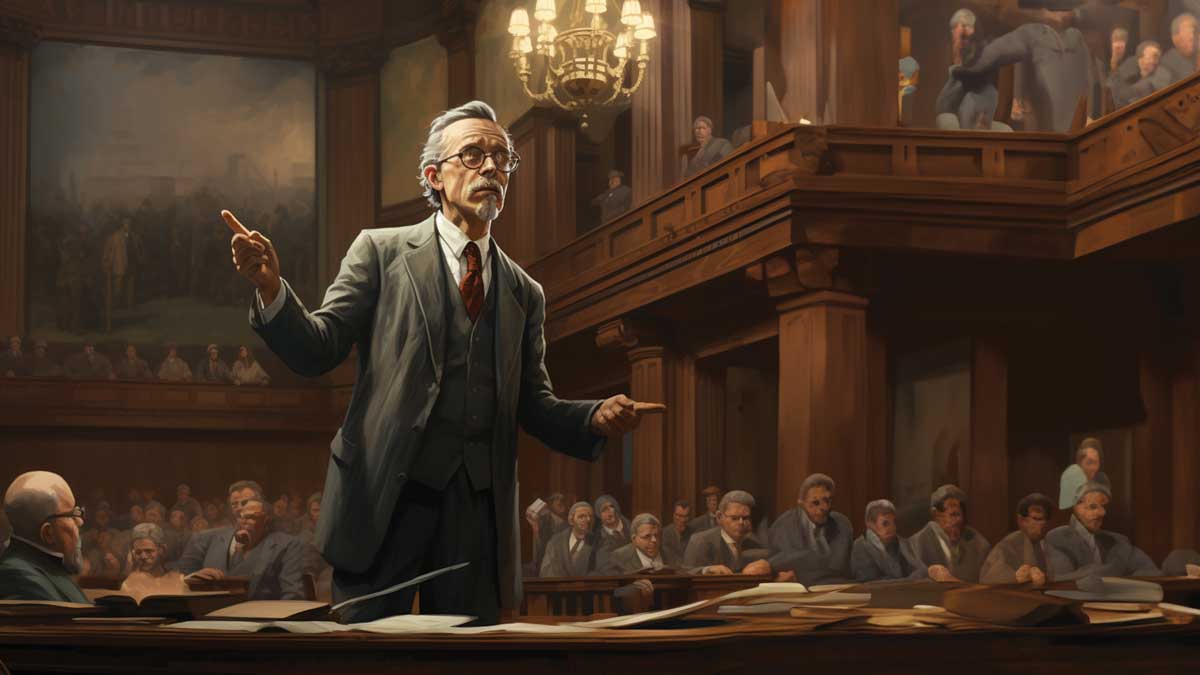Your first take on this article may be, “Why is a doctor writing about the law? Can’t he stick to his own discipline?” Well, I could argue that my paternal grandfather and my father’s three brothers were lawyers . . . perhaps it’s genetic, this interest in legal matters? And having been in medico-legal practice now for over two years, my interest in the law has expanded. Finally, I could also posit (sorry for the legalese!) that I’ve always had an interest in biblical laws.
The Old Testament has a strong emphasis on law, even legislating (if that’s the correct word) the first known legal sanction of a surgical procedure (you can guess that one), not to mention legally mandating things like dietary restrictions, quarantine of infectious diseases etc.
The Jewish legal system was also unique in its strong defence of the accused, requiring two or three witnesses to give evidence, not just one (Deuteronomy 17:6 and 19:15). That was applied also by the New Testament church (Matthew 18:16; 2 Corinthians 13:1; 1 Timothy 5:19). There were rules against bribery of witnesses (Exodus 23:8), illegal timing of trials and exclusion of judges from making arrests or being accusers. The judge in Old Testament times was to advocate for the accused. All of these rules were broken in the trial of Jesus1. We should not assume that Sabbath-keepers will be treated any better in times of persecution.
Prophecy from both Old and New Testaments points to legal sanctions against Bible-believing Christians, not only throughout our history, but especially near the close of earth’s history (Daniel 7:25; Revelation 13:7). Strong advocates for the truth will be needed in courts of the land.
Our denomination has a history of powerful legal defence against religious persecution, having established a GC department for religious liberty many decades ago. We have had the privilege of expert legal advice from both within and without the denomination.
Despite the legal defence against religious persecution enshrined in the US Bill of Rights, we understand that the strongest legal actions against Sabbatarian Christians will be led by the United States, completely overturning the First Amendment of the US Constitution (Great Controversy, pp588, 605). Many have speculated how this may happen, whether by presidential “emergency powers” decree, whether by a coup against the state (witness the storming of Congress on January 6, 2021), or by other means, even “legal” ones.
We know that the crucial issue will be Sabbath observance—Saturday or Sunday? Although “Blue Laws” have been in force in many US states for around 200 years in some cases2, recent legal cases have begun to further blur the distinction over what day is Sabbath. Take for example US postman, Gerald Groff, who kept Sunday strictly, as enjoined for the biblical Sabbath3. He refused to deliver parcels on Sundays, citing the First Amendment and other state laws in Pennsylvania. The argument brought by the US Postal Service had cited as their defence against sacking him, that accommodating his religious beliefs was an “undue hardship”, presumably on their postal customers.
However, on June 29, 2023, the US Supreme Court unanimously upheld his right to refuse to work on Sunday on “Sabbatarian” religious grounds. The argument of Groff’s defence lawyers had not apparently addressed the day of worship, only that his refusal was not an “undue hardship”. Ironically, Groff had offered to work on Saturdays to “make up the difference”, perhaps unconsciously breaking the very biblical commandment he might have thought he was upholding.
Of course, it will be said that arguments in favour of a “Sabbatarian excuse” against work, should logically also be applied to keepers of the true Sabbath, but the perception of the judges on the matter of which day is the Sabbath may be important in their decision-making in future.
This seemingly small case of Mr Groff demonstrates how such a ruling may establish a precedent for nominating Sunday as the Sabbath. I doubt that the Supreme Court would have the slightest doubt in their minds about which day was “Sabbath”. It would be interesting to know how they would deal with a Seventh-day Adventist refusing to work on Saturday.
Legal cases are often won or lost on the power of persuasion of either legal counsel. This is particularly true of jury trials. Even the personalities of the defence lawyers and prosecutors play a part. Combined with powerful logic, such may swing a case either way, guilty or innocent. Some examples are the famous defence of Luther before the German Diet and in more recent times, Adventist pioneer AT Jones’ famous 1888 testimony before the US Senate, against national Sunday laws, proposed by Senator Blair. Ironically, Blair’s bill (Section 2) would have stopped postal deliveries on Sundays, meaning that Mr Groff would have had no case to answer!
AT Jones responded to Senator Blair’s assertion that “the Sabbath is required for the good of society” (Blair meant Sunday), this way:
“It is for the good of society that men shall be Christians; but it is not in the province of the State to make Christians. For the state to undertake to do so would not be for the benefit of society; it never has been, and it never can be.”4
AT Jones went on to quote the Bible many times and the Declaration of Independence, the Bill of Rights, and even the “fundamental orders of Connecticut” from 1638. He eventually won the day, and the bill did not pass.
This demonstrates to me that we need good, solidly-biblically-grounded and well-read Adventist Christian lawyers. We are fortunate to have in our midst, both in Australia and overseas, some good men and women with those qualifications. Let us encourage them in their profession and uphold them in prayer, as they wrestle often with difficult decisions and complex arguments. For who knows, like Queen Esther, they may in future be called upon “for such a time as this”.
1. <https://deanbibleministries.org/dbmfiles/notes/22_RulesBrokenAtYeshuasTrial.pdf>.
2. Most US Blue Laws have been repealed in the past 20-30 years. However, just as Rowe v Wade was overturned dramatically by some US states in recent times, Blue Laws can be re-instated in state legislature “at the drop of a hat”.
3. <www.christianitytoday.com/news/2023/april/sabbath-court-post-office-religious-accommodation-groff.html>.
4. <https://libertare.tripod.com/p/e/jones.html>.
Dr David Pennington is a retired plastic surgeon living in Lindfield, NSW, now in medico-legal practice as an expert witness in plastic surgery.






